afterLoad (456.39KB) (9.5ms)
afterInitialise (1.27MB) (35.75ms)
afterRoute (840.55KB) (14.13ms)
beforeRenderComponent com_tags (21.4KB) (4.24ms)
afterRenderComponent com_tags (3.72MB) (237ms)
afterDispatch (27.44KB) (3.51ms)
beforeRenderRawModule mod_articles_category (READ MORE...) (423.96KB) (22.91ms)
Before Access::preloadComponents (all components) (50.9KB) (6.51ms)
After Access::preloadComponents (all components) (103.05KB) (894μs)
Before Access::getAssetRules (id:8 name:com_content) (840B) (18μs)
After Access::getAssetRules (id:8 name:com_content) (7.05KB) (40μs)
afterRenderRawModule mod_articles_category (READ MORE...) (7.99KB) (183ms)
beforeRenderRawModule mod_custom (BOOST YOUR IMMUNE DEFENSE) (6.45KB) (31μs)
afterRenderRawModule mod_custom (BOOST YOUR IMMUNE DEFENSE) (3.8KB) (178μs)
beforeRenderRawModule mod_tags_popular (Search) (2.36KB) (18μs)
afterRenderRawModule mod_tags_popular (Search) (40.99KB) (133ms)
beforeRenderRawModule mod_custom (Get additionel and more detailed knowledge ) (816B) (26μs)
afterRenderRawModule mod_custom (Get additionel and more detailed knowledge ) (1.55KB) (50μs)
beforeRenderRawModule mod_custom (Overview of vitamins, minerals, and essential fatty acids) (768B) (11μs)
afterRenderRawModule mod_custom (Overview of vitamins, minerals, and essential fatty acids) (960B) (21μs)
beforeRenderRawModule mod_custom (Q10 goes by many names) (608B) (9μs)
afterRenderRawModule mod_custom (Q10 goes by many names) (928B) (76μs)
beforeRenderRawModule mod_custom (Check this before you buy a Q10 product) (752B) (9μs)
afterRenderRawModule mod_custom (Check this before you buy a Q10 product) (944B) (42μs)
beforeRenderRawModule mod_custom (Are you taking supplements) (736B) (10μs)
afterRenderRawModule mod_custom (Are you taking supplements) (1.03KB) (23μs)
beforeRenderRawModule mod_custom (Weight loss that works) (736B) (18μs)
afterRenderRawModule mod_custom (Weight loss that works) (1.03KB) (23μs)
beforeRenderRawModule mod_custom (Antiaging) (720B) (9μs)
afterRenderRawModule mod_custom (Antiaging) (912B) (16μs)
beforeRenderRawModule mod_menu (Are you getting enough vitamins and minerals?) (2.5KB) (10μs)
afterRenderRawModule mod_menu (Are you getting enough vitamins and minerals?) (22.39KB) (480μs)
beforeRenderRawModule mod_menu (The key to increased well-being) (736B) (19μs)
afterRenderRawModule mod_menu (The key to increased well-being) (17.83KB) (219μs)
beforeRenderRawModule mod_menu (Did you know.....) (720B) (13μs)
afterRenderRawModule mod_menu (Did you know.....) (25.52KB) (2ms)
beforeRenderRawModule mod_custom (Useful Links) (1.06KB) (21μs)
afterRenderRawModule mod_custom (Useful Links) (1.02KB) (34μs)
beforeRenderRawModule mod_custom (Chronic fatigue tied Alan to his bed but Q10 capsules saved him:) (244.28KB) (5.28ms)
afterRenderRawModule mod_custom (Chronic fatigue tied Alan to his bed but Q10 capsules saved him:) (1.06KB) (46μs)
beforeRenderModule mod_custom (Chronic fatigue tied Alan to his bed but Q10 capsules saved him:) (768B) (4μs)
afterRenderModule mod_custom (Chronic fatigue tied Alan to his bed but Q10 capsules saved him:) (1.3KB) (53μs)
beforeRenderRawModule mod_custom (Cholesterol-lowering without side effects:) (368B) (11μs)
afterRenderRawModule mod_custom (Cholesterol-lowering without side effects:) (1.06KB) (25μs)
beforeRenderModule mod_custom (Cholesterol-lowering without side effects:) (752B) (2μs)
afterRenderModule mod_custom (Cholesterol-lowering without side effects:) (1.28KB) (31μs)
beforeRenderModule mod_articles_category (READ MORE...) (20.82KB) (335μs)
afterRenderModule mod_articles_category (READ MORE...) (1.25KB) (50μs)
beforeRenderModule mod_custom (BOOST YOUR IMMUNE DEFENSE) (6.81KB) (12μs)
afterRenderModule mod_custom (BOOST YOUR IMMUNE DEFENSE) (1.28KB) (30μs)
beforeRenderModule mod_tags_popular (Search) (1.98KB) (15μs)
afterRenderModule mod_tags_popular (Search) (1.27KB) (25μs)
beforeRenderModule mod_custom (Get additionel and more detailed knowledge ) (1.17KB) (10μs)
afterRenderModule mod_custom (Get additionel and more detailed knowledge ) (1.3KB) (24μs)
beforeRenderModule mod_custom (Overview of vitamins, minerals, and essential fatty acids) (384B) (10μs)
afterRenderModule mod_custom (Overview of vitamins, minerals, and essential fatty acids) (1.31KB) (19μs)
beforeRenderModule mod_custom (Q10 goes by many names) (208B) (16μs)
afterRenderModule mod_custom (Q10 goes by many names) (1.27KB) (21μs)
beforeRenderModule mod_custom (Check this before you buy a Q10 product) (352B) (96μs)
afterRenderModule mod_custom (Check this before you buy a Q10 product) (1.28KB) (28μs)
beforeRenderModule mod_custom (Are you taking supplements) (352B) (9μs)
afterRenderModule mod_custom (Are you taking supplements) (1.28KB) (24μs)
beforeRenderModule mod_custom (Weight loss that works) (336B) (8μs)
afterRenderModule mod_custom (Weight loss that works) (1.27KB) (20μs)
beforeRenderModule mod_custom (Antiaging) (336B) (34μs)
afterRenderModule mod_custom (Antiaging) (3.77KB) (25μs)
beforeRenderModule mod_menu (Are you getting enough vitamins and minerals?) (2.13KB) (10μs)
afterRenderModule mod_menu (Are you getting enough vitamins and minerals?) (1.3KB) (18μs)
beforeRenderModule mod_menu (The key to increased well-being) (352B) (9μs)
afterRenderModule mod_menu (The key to increased well-being) (1.28KB) (18μs)
beforeRenderModule mod_menu (Did you know.....) (336B) (9μs)
afterRenderModule mod_menu (Did you know.....) (1.27KB) (44μs)
beforeRenderModule mod_custom (Useful Links) (1.44KB) (9μs)
afterRenderModule mod_custom (Useful Links) (1.27KB) (25μs)
beforeRenderRawModule mod_menu (Main Menu - English) (25.14KB) (1.52ms)
afterRenderRawModule mod_menu (Main Menu - English) (190.95KB) (4.28ms)
beforeRenderModule mod_menu (Main Menu - English) (720B) (6μs)
afterRenderModule mod_menu (Main Menu - English) (4.86KB) (76μs)
beforeRenderRawModule mod_languages (Sprogskift) (3.94KB) (19μs)
afterRenderRawModule mod_languages (Sprogskift) (22.55KB) (4.06ms)
beforeRenderModule mod_languages (Sprogskift) (720B) (5μs)
afterRenderModule mod_languages (Sprogskift) (5.31KB) (25μs)
beforeRenderRawModule mod_finder () (6.34KB) (15μs)
afterRenderRawModule mod_finder () (128.59KB) (4.31ms)
beforeRenderModule mod_finder () (704B) (5μs)
afterRenderModule mod_finder () (3.29KB) (38μs)
beforeRenderRawModule mod_custom () (6.62KB) (200μs)
afterRenderRawModule mod_custom () (22.68KB) (1.93ms)
beforeRenderModule mod_custom () (704B) (6μs)
afterRenderModule mod_custom () (1.23KB) (80μs)
beforeRenderRawModule mod_menu (Main Menu - English) (5.07KB) (144μs)
afterRenderRawModule mod_menu (Main Menu - English) (6.3KB) (1.82ms)
beforeRenderModule mod_menu (Main Menu - English) (720B) (11μs)
afterRenderModule mod_menu (Main Menu - English) (1.25KB) (574μs)
beforeRenderRawModule mod_languages (Sprogskift Mobil) (912B) (39μs)
afterRenderRawModule mod_languages (Sprogskift Mobil) (3.89KB) (874μs)
beforeRenderModule mod_languages (Sprogskift Mobil) (720B) (5μs)
afterRenderModule mod_languages (Sprogskift Mobil) (1.27KB) (48μs)
beforeRenderRawModule mod_finder () (2.3KB) (17μs)
afterRenderRawModule mod_finder () (6.25KB) (655μs)
beforeRenderModule mod_finder () (704B) (5μs)
afterRenderModule mod_finder () (1.23KB) (54μs)
beforeRenderRawModule mod_custom () (8.66KB) (218μs)
afterRenderRawModule mod_custom () (904B) (159μs)
beforeRenderModule mod_custom () (704B) (3μs)
afterRenderModule mod_custom () (2.43KB) (22μs)
beforeRenderRawModule mod_custom () (688B) (90μs)
afterRenderRawModule mod_custom () (896B) (113μs)
beforeRenderModule mod_custom () (704B) (2μs)
afterRenderModule mod_custom () (2.71KB) (21μs)
afterRender (838.78KB) (13.88ms)
| 1 x afterRenderComponent com_tags (3.72MB) (34.07%) | 237.22ms |
| 1 x afterRenderRawModule mod_articles_category (READ MORE...) (7.99KB) (26.28%) | 182.93ms |
| 1 x afterRenderRawModule mod_tags_popular (Search) (40.99KB) (19.03%) | 132.52ms |
| 1 x afterInitialise (1.27MB) (5.13%) | 35.75ms |
| 1 x beforeRenderRawModule mod_articles_category (READ MORE...) (423.96KB) (3.29%) | 22.91ms |
| 1 x afterRoute (840.55KB) (2.03%) | 14.13ms |
| 1 x afterRender (838.78KB) (1.99%) | 13.88ms |
| 1 x afterLoad (456.39KB) (1.36%) | 9.50ms |
| 1 x Before Access::preloadComponents (all components) (50.9KB) (0.93%) | 6.51ms |
| 1 x beforeRenderRawModule mod_custom (Chronic fatigue tied Alan to his bed but Q10 capsules saved him:) (244.28KB) (0.76%) | 5.28ms |
| 1 x afterRenderRawModule mod_finder () (128.59KB) (0.62%) | 4.31ms |
| 1 x afterRenderRawModule mod_menu (Main Menu - English) (190.95KB) (0.61%) | 4.28ms |
| 1 x beforeRenderComponent com_tags (21.4KB) (0.61%) | 4.24ms |
| 1 x afterRenderRawModule mod_languages (Sprogskift) (22.55KB) (0.58%) | 4.06ms |
| 1 x afterDispatch (27.44KB) (0.5%) | 3.51ms |
| 1 x afterRenderRawModule mod_menu (Did you know.....) (25.52KB) (0.29%) | 2.00ms |
| 1 x afterRenderRawModule mod_custom () (22.68KB) (0.28%) | 1.93ms |
| 1 x afterRenderRawModule mod_menu (Main Menu - English) (6.3KB) (0.26%) | 1.82ms |
| 1 x beforeRenderRawModule mod_menu (Main Menu - English) (25.14KB) (0.22%) | 1.52ms |
| 1 x After Access::preloadComponents (all components) (103.05KB) (0.13%) | 894μs |
| 1 x afterRenderRawModule mod_languages (Sprogskift Mobil) (3.89KB) (0.13%) | 874μs |
| 1 x afterRenderRawModule mod_finder () (6.25KB) (0.09%) | 655μs |
| 1 x afterRenderModule mod_menu (Main Menu - English) (1.25KB) (0.08%) | 574μs |
| 1 x afterRenderRawModule mod_menu (Are you getting enough vitamins and minerals?) (22.39KB) (0.07%) | 480μs |
| 1 x beforeRenderModule mod_articles_category (READ MORE...) (20.82KB) (0.05%) | 335μs |
| 1 x afterRenderRawModule mod_menu (The key to increased well-being) (17.83KB) (0.03%) | 219μs |
| 1 x beforeRenderRawModule mod_custom () (8.66KB) (0.03%) | 218μs |
| 1 x beforeRenderRawModule mod_custom () (6.62KB) (0.03%) | 200μs |
| 1 x afterRenderRawModule mod_custom (BOOST YOUR IMMUNE DEFENSE) (3.8KB) (0.03%) | 178μs |
| 1 x afterRenderRawModule mod_custom () (904B) (0.02%) | 159μs |
| 1 x beforeRenderRawModule mod_menu (Main Menu - English) (5.07KB) (0.02%) | 144μs |
| 1 x afterRenderRawModule mod_custom () (896B) (0.02%) | 113μs |
| 1 x beforeRenderModule mod_custom (Check this before you buy a Q10 product) (352B) (0.01%) | 96μs |
| 1 x beforeRenderRawModule mod_custom () (688B) (0.01%) | 90μs |
| 1 x afterRenderModule mod_custom () (1.23KB) (0.01%) | 80μs |
| 1 x afterRenderModule mod_menu (Main Menu - English) (4.86KB) (0.01%) | 76μs |
| 1 x afterRenderRawModule mod_custom (Q10 goes by many names) (928B) (0.01%) | 76μs |
| 1 x afterRenderModule mod_finder () (1.23KB) (0.01%) | 54μs |
| 1 x afterRenderModule mod_custom (Chronic fatigue tied Alan to his bed but Q10 capsules saved him:) (1.3KB) (0.01%) | 53μs |
| 1 x afterRenderRawModule mod_custom (Get additionel and more detailed knowledge ) (1.55KB) (0.01%) | 50μs |
| 1 x afterRenderModule mod_articles_category (READ MORE...) (1.25KB) (0.01%) | 50μs |
| 1 x afterRenderModule mod_languages (Sprogskift Mobil) (1.27KB) (0.01%) | 48μs |
| 1 x afterRenderRawModule mod_custom (Chronic fatigue tied Alan to his bed but Q10 capsules saved him:) (1.06KB) (0.01%) | 46μs |
| 1 x afterRenderModule mod_menu (Did you know.....) (1.27KB) (0.01%) | 44μs |
| 1 x afterRenderRawModule mod_custom (Check this before you buy a Q10 product) (944B) (0.01%) | 42μs |
| 1 x After Access::getAssetRules (id:8 name:com_content) (7.05KB) (0.01%) | 40μs |
| 1 x beforeRenderRawModule mod_languages (Sprogskift Mobil) (912B) (0.01%) | 39μs |
| 1 x afterRenderModule mod_finder () (3.29KB) (0.01%) | 38μs |
| 1 x afterRenderRawModule mod_custom (Useful Links) (1.02KB) (0%) | 34μs |
| 1 x beforeRenderModule mod_custom (Antiaging) (336B) (0%) | 34μs |
| 1 x beforeRenderRawModule mod_custom (BOOST YOUR IMMUNE DEFENSE) (6.45KB) (0%) | 31μs |
| 1 x afterRenderModule mod_custom (Cholesterol-lowering without side effects:) (1.28KB) (0%) | 31μs |
| 1 x afterRenderModule mod_custom (BOOST YOUR IMMUNE DEFENSE) (1.28KB) (0%) | 30μs |
| 1 x afterRenderModule mod_custom (Check this before you buy a Q10 product) (1.28KB) (0%) | 28μs |
| 1 x beforeRenderRawModule mod_custom (Get additionel and more detailed knowledge ) (816B) (0%) | 26μs |
| 1 x afterRenderRawModule mod_custom (Cholesterol-lowering without side effects:) (1.06KB) (0%) | 25μs |
| 1 x afterRenderModule mod_custom (Antiaging) (3.77KB) (0%) | 25μs |
| 1 x afterRenderModule mod_custom (Useful Links) (1.27KB) (0%) | 25μs |
| 1 x afterRenderModule mod_languages (Sprogskift) (5.31KB) (0%) | 25μs |
| 1 x afterRenderModule mod_tags_popular (Search) (1.27KB) (0%) | 25μs |
| 1 x afterRenderModule mod_custom (Get additionel and more detailed knowledge ) (1.3KB) (0%) | 24μs |
| 1 x afterRenderModule mod_custom (Are you taking supplements) (1.28KB) (0%) | 24μs |
| 1 x afterRenderRawModule mod_custom (Are you taking supplements) (1.03KB) (0%) | 23μs |
| 1 x afterRenderRawModule mod_custom (Weight loss that works) (1.03KB) (0%) | 23μs |
| 1 x afterRenderModule mod_custom () (2.43KB) (0%) | 22μs |
| 1 x afterRenderRawModule mod_custom (Overview of vitamins, minerals, and essential fatty acids) (960B) (0%) | 21μs |
| 1 x beforeRenderRawModule mod_custom (Useful Links) (1.06KB) (0%) | 21μs |
| 1 x afterRenderModule mod_custom (Q10 goes by many names) (1.27KB) (0%) | 21μs |
| 1 x afterRenderModule mod_custom () (2.71KB) (0%) | 21μs |
| 1 x afterRenderModule mod_custom (Weight loss that works) (1.27KB) (0%) | 20μs |
| 1 x beforeRenderRawModule mod_menu (The key to increased well-being) (736B) (0%) | 19μs |
| 1 x afterRenderModule mod_custom (Overview of vitamins, minerals, and essential fatty acids) (1.31KB) (0%) | 19μs |
| 1 x beforeRenderRawModule mod_languages (Sprogskift) (3.94KB) (0%) | 19μs |
| 1 x Before Access::getAssetRules (id:8 name:com_content) (840B) (0%) | 18μs |
| 1 x beforeRenderRawModule mod_tags_popular (Search) (2.36KB) (0%) | 18μs |
| 1 x afterRenderModule mod_menu (Are you getting enough vitamins and minerals?) (1.3KB) (0%) | 18μs |
| 1 x afterRenderModule mod_menu (The key to increased well-being) (1.28KB) (0%) | 18μs |
| 1 x beforeRenderRawModule mod_custom (Weight loss that works) (736B) (0%) | 18μs |
| 1 x beforeRenderRawModule mod_finder () (2.3KB) (0%) | 17μs |
| 2 x beforeRenderModule mod_menu (Main Menu - English) (720B) (0%) | 17μs |
| 1 x afterRenderRawModule mod_custom (Antiaging) (912B) (0%) | 16μs |
| 1 x beforeRenderModule mod_custom (Q10 goes by many names) (208B) (0%) | 16μs |
| 1 x beforeRenderModule mod_tags_popular (Search) (1.98KB) (0%) | 15μs |
| 1 x beforeRenderRawModule mod_finder () (6.34KB) (0%) | 15μs |
| 1 x beforeRenderRawModule mod_menu (Did you know.....) (720B) (0%) | 13μs |
| 1 x beforeRenderModule mod_custom (BOOST YOUR IMMUNE DEFENSE) (6.81KB) (0%) | 12μs |
| 1 x beforeRenderRawModule mod_custom (Overview of vitamins, minerals, and essential fatty acids) (768B) (0%) | 11μs |
| 1 x beforeRenderRawModule mod_custom (Cholesterol-lowering without side effects:) (368B) (0%) | 11μs |
| 3 x beforeRenderModule mod_custom () (704B) (0%) | 11μs |
| 1 x beforeRenderRawModule mod_custom (Are you taking supplements) (736B) (0%) | 10μs |
| 1 x beforeRenderRawModule mod_menu (Are you getting enough vitamins and minerals?) (2.5KB) (0%) | 10μs |
| 1 x beforeRenderModule mod_custom (Get additionel and more detailed knowledge ) (1.17KB) (0%) | 10μs |
| 1 x beforeRenderModule mod_custom (Overview of vitamins, minerals, and essential fatty acids) (384B) (0%) | 10μs |
| 1 x beforeRenderModule mod_menu (Are you getting enough vitamins and minerals?) (2.13KB) (0%) | 10μs |
| 2 x beforeRenderModule mod_finder () (704B) (0%) | 10μs |
| 1 x beforeRenderRawModule mod_custom (Q10 goes by many names) (608B) (0%) | 9μs |
| 1 x beforeRenderRawModule mod_custom (Check this before you buy a Q10 product) (752B) (0%) | 9μs |
| 1 x beforeRenderRawModule mod_custom (Antiaging) (720B) (0%) | 9μs |
| 1 x beforeRenderModule mod_custom (Are you taking supplements) (352B) (0%) | 9μs |
| 1 x beforeRenderModule mod_menu (Did you know.....) (336B) (0%) | 9μs |
| 1 x beforeRenderModule mod_custom (Useful Links) (1.44KB) (0%) | 9μs |
| 1 x beforeRenderModule mod_menu (The key to increased well-being) (352B) (0%) | 9μs |
| 1 x beforeRenderModule mod_custom (Weight loss that works) (336B) (0%) | 8μs |
| 1 x beforeRenderModule mod_languages (Sprogskift) (720B) (0%) | 5μs |
| 1 x beforeRenderModule mod_languages (Sprogskift Mobil) (720B) (0%) | 5μs |
| 1 x beforeRenderModule mod_custom (Chronic fatigue tied Alan to his bed but Q10 capsules saved him:) (768B) (0%) | 4μs |
| 1 x beforeRenderModule mod_custom (Cholesterol-lowering without side effects:) (752B) (0%) | 2μs |
 According to the statistics, far too many patients contract an infection while being hospitalized in a Danish hospital. This has enormous human and economic costs that need to be addressed. Hospital infections are not only a consequence of poor hygiene, it actually turns out that 40 percent of the patients are malnourished to some degree, which impairs their immune system and makes them an easier target for infections. Lack of vitamin C, vitamin D, selenium, zinc, and iron seem to be the big and overlooked problem.
According to the statistics, far too many patients contract an infection while being hospitalized in a Danish hospital. This has enormous human and economic costs that need to be addressed. Hospital infections are not only a consequence of poor hygiene, it actually turns out that 40 percent of the patients are malnourished to some degree, which impairs their immune system and makes them an easier target for infections. Lack of vitamin C, vitamin D, selenium, zinc, and iron seem to be the big and overlooked problem.







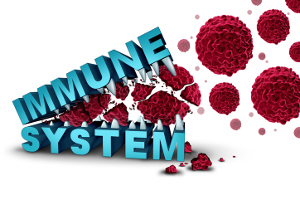 It is not the actual COVID-19 virus that can become lethal. It is the immune system’s overreaction with hyperinflammation and a storm of cytokines that destroys healthy tissue in the lungs, the cardiovascular system, and other places in the body, according to a new article that is published in The Lancet. The capacity of the immune system determines if an infection like COVID-19 is either harmless or life-threatening. For that reason, hygienic measures, masks, isolation, and delayed vaccines are not sufficient. We also need to bolster our immune system against COVID-19 and other pandemics that may occur in the future. Let’s look closer at vitamin C, vitamin D, selenium and zinc, all of which are essential for preventing a well-functioning immune system from going off its rails. What is also worth mentioning is that many people lack these nutrients, especially older people and other exposed groups.
It is not the actual COVID-19 virus that can become lethal. It is the immune system’s overreaction with hyperinflammation and a storm of cytokines that destroys healthy tissue in the lungs, the cardiovascular system, and other places in the body, according to a new article that is published in The Lancet. The capacity of the immune system determines if an infection like COVID-19 is either harmless or life-threatening. For that reason, hygienic measures, masks, isolation, and delayed vaccines are not sufficient. We also need to bolster our immune system against COVID-19 and other pandemics that may occur in the future. Let’s look closer at vitamin C, vitamin D, selenium and zinc, all of which are essential for preventing a well-functioning immune system from going off its rails. What is also worth mentioning is that many people lack these nutrients, especially older people and other exposed groups. Elevated blood pressure causes more premature deaths worldwide than any other factor. Blood pressure is regulated by a number of things such as diet and lifestyle. Science has also discovered that low blood levels of
Elevated blood pressure causes more premature deaths worldwide than any other factor. Blood pressure is regulated by a number of things such as diet and lifestyle. Science has also discovered that low blood levels of 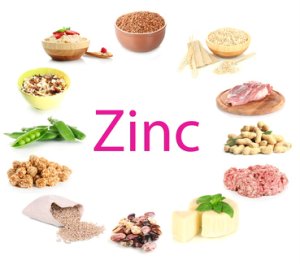 Earlier studies have shown that
Earlier studies have shown that 
 Over the past decades, the number of children and teenagers with ADHD has skyrocketed, and the diet has a lot to say. According to a new American-Canadian study, supplementing with all the essential vitamins and minerals can improve young ADHD sufferers’ mood, emotional disturbances, and ability to concentrate. The supplements can even stimulate their growth.
Over the past decades, the number of children and teenagers with ADHD has skyrocketed, and the diet has a lot to say. According to a new American-Canadian study, supplementing with all the essential vitamins and minerals can improve young ADHD sufferers’ mood, emotional disturbances, and ability to concentrate. The supplements can even stimulate their growth. According to Bruce Ames, an American biochemist, ageing processes are largely due to lack of nutrients. One important contributing factor is the fact that our uptake and utilization of vitamins and minerals decrease with age. In addition, a lot of different types of medicine block our ability to utilize different nutrients. As a result of this, many of our enzyme processes slow down, making our cells increasingly vulnerable and that increases our risk of disease. Nonetheless, there is a lot we can do to optimize our intake and utilization of nutrients, particularly with respect to vitamin B12, vitamin D, calcium, iron, selenium, and zinc. It is also worth taking a look at Q10 for energy turnover and melatonin for healthy sleep. Our endogenous synthesis of both compounds decreases with age.
According to Bruce Ames, an American biochemist, ageing processes are largely due to lack of nutrients. One important contributing factor is the fact that our uptake and utilization of vitamins and minerals decrease with age. In addition, a lot of different types of medicine block our ability to utilize different nutrients. As a result of this, many of our enzyme processes slow down, making our cells increasingly vulnerable and that increases our risk of disease. Nonetheless, there is a lot we can do to optimize our intake and utilization of nutrients, particularly with respect to vitamin B12, vitamin D, calcium, iron, selenium, and zinc. It is also worth taking a look at Q10 for energy turnover and melatonin for healthy sleep. Our endogenous synthesis of both compounds decreases with age. A cold beer with lunch or a glass of red wine to go with your steak may be tempting. In fact, alcohol in limited amounts can be relaxing and it provides beneficial antioxidants. However, Danes drink too much, and our excessive alcohol consumption is one of the worst threats to public health. Many alcoholics suffer from unstable blood sugar levels, which can have a rather bad impact on their willpower. In addition, the empty calories deplete the body’s levels of vitamins, minerals, and essential fatty acids, on which the nervous system, the brain, and the liver depend. This can easily turn into a vicious cycle. Therefore, having stable blood sugar and making sure to get plenty of vital nutrients is important for preventing and treating alcohol abuse.
A cold beer with lunch or a glass of red wine to go with your steak may be tempting. In fact, alcohol in limited amounts can be relaxing and it provides beneficial antioxidants. However, Danes drink too much, and our excessive alcohol consumption is one of the worst threats to public health. Many alcoholics suffer from unstable blood sugar levels, which can have a rather bad impact on their willpower. In addition, the empty calories deplete the body’s levels of vitamins, minerals, and essential fatty acids, on which the nervous system, the brain, and the liver depend. This can easily turn into a vicious cycle. Therefore, having stable blood sugar and making sure to get plenty of vital nutrients is important for preventing and treating alcohol abuse. Impaired sperm quality if one of the major reasons for involuntary infertility. Studies show that oxidative stress, an imbalance between harmful free radicals and protective antioxidants, causes damage to sperm cells. In a review article that is published in Reproductive Sciences, a group of researchers look closer at different molecular mechanisms and how vitamins C, E, selenium, zinc, and coenzyme Q10 plus other antioxidants protect the vulnerable sperm cells.
Impaired sperm quality if one of the major reasons for involuntary infertility. Studies show that oxidative stress, an imbalance between harmful free radicals and protective antioxidants, causes damage to sperm cells. In a review article that is published in Reproductive Sciences, a group of researchers look closer at different molecular mechanisms and how vitamins C, E, selenium, zinc, and coenzyme Q10 plus other antioxidants protect the vulnerable sperm cells. Veganism is on the rise, and experts have different views on whether or not plant-diets are suited for children. A team of Polish scientists has now discovered that children on vegan diets have low stature and lower bone density than children who eat meat and dairy products. Children on vegan diets also are also more likely to lack amino acids,
Veganism is on the rise, and experts have different views on whether or not plant-diets are suited for children. A team of Polish scientists has now discovered that children on vegan diets have low stature and lower bone density than children who eat meat and dairy products. Children on vegan diets also are also more likely to lack amino acids,  Lack of dietary
Lack of dietary  Birth control pills are commonly used as a source of prevention. Most women seem to tolerate the pills rather well, but there are known side effects such as headaches, mood swings, and a slightly increased risk of blood clots and breast cancer. The different side effects are a result of the birth control pills and their disturbing impact on various enzyme processes, which depend on most B vitamins, vitamin C, magnesium, selenium, and zinc. Vitamin C, zinc, and selenium also serve as effective antioxidants that protect our cells and cardiovascular system against oxidative stress. It is therefore essential to get plenty of these nutrients in order to lower the risk of side effects.
Birth control pills are commonly used as a source of prevention. Most women seem to tolerate the pills rather well, but there are known side effects such as headaches, mood swings, and a slightly increased risk of blood clots and breast cancer. The different side effects are a result of the birth control pills and their disturbing impact on various enzyme processes, which depend on most B vitamins, vitamin C, magnesium, selenium, and zinc. Vitamin C, zinc, and selenium also serve as effective antioxidants that protect our cells and cardiovascular system against oxidative stress. It is therefore essential to get plenty of these nutrients in order to lower the risk of side effects.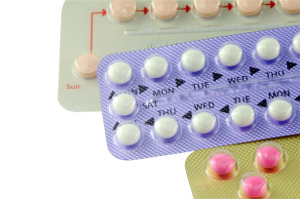 According to Danish research, more than one in three women suspect that their birth control pills cause side effects. Other studies show that birth control pills affect the body’s ability to utilize several different B vitamins, vitamin C, vitamin E, magnesium, selenium, and zinc. The lack of these essential nutrients contributes to a number of common side effects such as fluid retention, blood clots, cancer, and depression.
According to Danish research, more than one in three women suspect that their birth control pills cause side effects. Other studies show that birth control pills affect the body’s ability to utilize several different B vitamins, vitamin C, vitamin E, magnesium, selenium, and zinc. The lack of these essential nutrients contributes to a number of common side effects such as fluid retention, blood clots, cancer, and depression.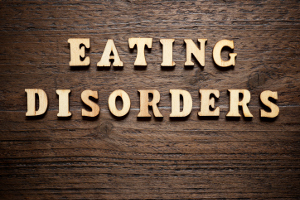 The rate of eating disturbances among children, teenagers, and adults has increased in the past year. Health authorities typically focus on cultural and psychosocial causes and therapies, but the treatments often drag out and are inadequate. What is equally important is to look at whether the patients lack essential nutrients that are important for the brain, the nervous system, the appetite, and the sense of smell and taste. Clinical research from the past decades has shown that anorexia and bulimia in particular can often be treated with zinc and various other nutrients, while chromium is important for maintaining stable blood sugar. The use of the right supplements combined with different therapy forms may therefore be the right way to obtain permanent results.
The rate of eating disturbances among children, teenagers, and adults has increased in the past year. Health authorities typically focus on cultural and psychosocial causes and therapies, but the treatments often drag out and are inadequate. What is equally important is to look at whether the patients lack essential nutrients that are important for the brain, the nervous system, the appetite, and the sense of smell and taste. Clinical research from the past decades has shown that anorexia and bulimia in particular can often be treated with zinc and various other nutrients, while chromium is important for maintaining stable blood sugar. The use of the right supplements combined with different therapy forms may therefore be the right way to obtain permanent results. COVID-19 represents a serious global threat against public health and the economy because we still lack a vaccine and effective therapies. When COVID-19 becomes life-threatening it is primarily because the immune defense overreacts with a cytokine storm and hyperinflammation that destroys healthy tissue in the lungs, the circulatory system, and other places. Older people and heart failure patients already suffer from chronic low-grade, uncontrolled inflammation, to which nutrient deficiencies contribute and make the patients increasingly vulnerable. This also applies to people with metabolic syndrome and diabetes, many of which are overweight. For that reason, scientists affiliated with universities and research centers in Norway, Sweden, and Russia have searched the scientific literature to find studies that focus on whether supplementation with vitamin D, selenium, and zinc can help prevent a COVID-19 infection from escalating and becoming life-threatening.
COVID-19 represents a serious global threat against public health and the economy because we still lack a vaccine and effective therapies. When COVID-19 becomes life-threatening it is primarily because the immune defense overreacts with a cytokine storm and hyperinflammation that destroys healthy tissue in the lungs, the circulatory system, and other places. Older people and heart failure patients already suffer from chronic low-grade, uncontrolled inflammation, to which nutrient deficiencies contribute and make the patients increasingly vulnerable. This also applies to people with metabolic syndrome and diabetes, many of which are overweight. For that reason, scientists affiliated with universities and research centers in Norway, Sweden, and Russia have searched the scientific literature to find studies that focus on whether supplementation with vitamin D, selenium, and zinc can help prevent a COVID-19 infection from escalating and becoming life-threatening.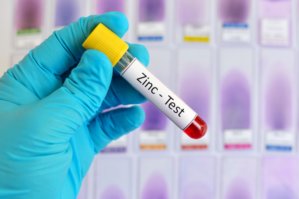 This almost sounds too good to be true, but scientists from Germany and the United States have discovered that
This almost sounds too good to be true, but scientists from Germany and the United States have discovered that 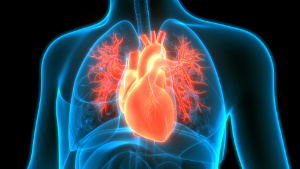 Seniors have an increased risk of cardiovascular disease, which is the leading cause of death. It is commonly known that diet plays a key role in preventing these diseases, and a team of scientists therefore decided to look closer at
Seniors have an increased risk of cardiovascular disease, which is the leading cause of death. It is commonly known that diet plays a key role in preventing these diseases, and a team of scientists therefore decided to look closer at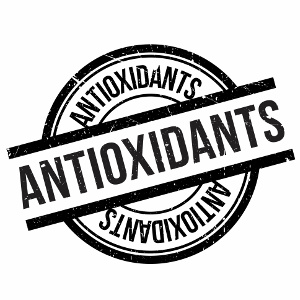 Everyone is affected by electromagnetic radiation from cell phones, device screens, the electricity supply and other electric systems. The brain’s neurons are particularly vulnerable, especially because electromagnetic radiation can increase the neuronal uptake of calcium ions, which makes the neurons overactive and may even cause them to perish. A study published in News Medical Life Sciences shows that too much calcium in the brain increases the risk of Alzheimer’s disease and digital dementia in young individuals. The increased electromagnetic radiation also generates loads of free radicals in the body that can cause oxidative stress and cellular damage because it outperforms the body’s different antioxidants. This was described in an article published in The Journal of Microscopy & Ultrastructure that also mentions how electromagnetic radiation can cause stress, headaches, fatigue, anxiety, and other symptoms.
Everyone is affected by electromagnetic radiation from cell phones, device screens, the electricity supply and other electric systems. The brain’s neurons are particularly vulnerable, especially because electromagnetic radiation can increase the neuronal uptake of calcium ions, which makes the neurons overactive and may even cause them to perish. A study published in News Medical Life Sciences shows that too much calcium in the brain increases the risk of Alzheimer’s disease and digital dementia in young individuals. The increased electromagnetic radiation also generates loads of free radicals in the body that can cause oxidative stress and cellular damage because it outperforms the body’s different antioxidants. This was described in an article published in The Journal of Microscopy & Ultrastructure that also mentions how electromagnetic radiation can cause stress, headaches, fatigue, anxiety, and other symptoms. Although chronic inflammation is not something that you feel as such, it sets the stage for a number of symptoms and a host of different diseases including fatigue, overweight, diabetes, cardiovascular disease, rheumatism, metabolic disorders, asthma, periodontal disease, bowel infections, depression, Alzheimer’s disease, sclerosis, and cancer. Not surprisingly, people are more and more hooked on the anti-inflammatory lifestyle, and we will take a closer look at studies showing how fish oil, vitamin D, selenium, magnesium, and zinc contribute to preventing and fighting inflammation, related diseases and premature death. Any nutritional supplements must be of a proper quality that the body can absorb, and they should contain therapeutic dosages.
Although chronic inflammation is not something that you feel as such, it sets the stage for a number of symptoms and a host of different diseases including fatigue, overweight, diabetes, cardiovascular disease, rheumatism, metabolic disorders, asthma, periodontal disease, bowel infections, depression, Alzheimer’s disease, sclerosis, and cancer. Not surprisingly, people are more and more hooked on the anti-inflammatory lifestyle, and we will take a closer look at studies showing how fish oil, vitamin D, selenium, magnesium, and zinc contribute to preventing and fighting inflammation, related diseases and premature death. Any nutritional supplements must be of a proper quality that the body can absorb, and they should contain therapeutic dosages.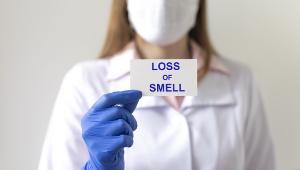 If you lose your sense of smell all of a sudden, it is most likely a sign that you have been infected with the coronavirus, according two large, international studies published in the science journal Chemical Senses. Many COVID-19 patients also lose their sense of taste and even if there are no other complications, it can affect their quality of life. The big question is if there is a link between
If you lose your sense of smell all of a sudden, it is most likely a sign that you have been infected with the coronavirus, according two large, international studies published in the science journal Chemical Senses. Many COVID-19 patients also lose their sense of taste and even if there are no other complications, it can affect their quality of life. The big question is if there is a link between 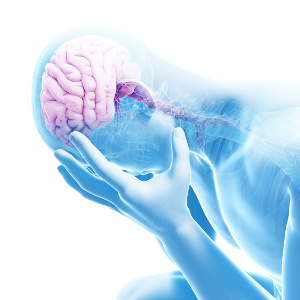 There is a link between depression, dementia and Alzheimer’s disease. Also, it appears that chronic stress contributes to oxidative stress and brain cell damage. In a review article that is published in the science journal Antioxidants, researchers look closer at how oxidative stress affects the brain. They also study how antioxidants can be included in the prevention and treatment of Alzheimer’s disease, and why the most promising results are seen with selenium, Q10, melatonin, vitamin E, turmeric, and polyphenols. With regard to depression, selenium, zinc, vitamin E, turmeric, and saffron have demonstrated the greatest potential.
There is a link between depression, dementia and Alzheimer’s disease. Also, it appears that chronic stress contributes to oxidative stress and brain cell damage. In a review article that is published in the science journal Antioxidants, researchers look closer at how oxidative stress affects the brain. They also study how antioxidants can be included in the prevention and treatment of Alzheimer’s disease, and why the most promising results are seen with selenium, Q10, melatonin, vitamin E, turmeric, and polyphenols. With regard to depression, selenium, zinc, vitamin E, turmeric, and saffron have demonstrated the greatest potential.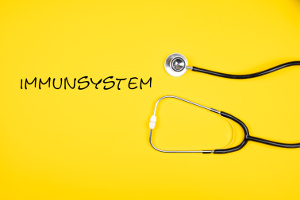 A panel of physicians and professors collaborating with the Swiss Society for Nutrition (SSN) recently reviewed the scientific evidence on the role of micronutrients in supporting a well-functioning immune defense for optimal health with particular focus on viral infections related to COVID-19. They conclude that there is widespread lack of vitamin C, vitamin D, selenium, zinc, and omega-3 fatty acids, all of which are crucial nutrients for the immune system. These deficiencies contribute to new waves of COVID-19 and can cause the infections to become life-threatening. The panel calls for immediate action with relevant focus on diet and supplements.
A panel of physicians and professors collaborating with the Swiss Society for Nutrition (SSN) recently reviewed the scientific evidence on the role of micronutrients in supporting a well-functioning immune defense for optimal health with particular focus on viral infections related to COVID-19. They conclude that there is widespread lack of vitamin C, vitamin D, selenium, zinc, and omega-3 fatty acids, all of which are crucial nutrients for the immune system. These deficiencies contribute to new waves of COVID-19 and can cause the infections to become life-threatening. The panel calls for immediate action with relevant focus on diet and supplements. Infertility affects around one in seven couples. WHO considers it a global health problem. One of the leading causes is impaired semen quality, and Danish, Norwegian, and German men have lower sperm quality than any other male populations. Impaired sperm quality may be a result of an unhealthy lifestyle with stress, tobacco, stimulants, and hormone-disrupting compounds. On the other hand, scientists from Mexico have found that supplements of zinc, selenium, Q10, and omega-3 have an effect on the number of sperm cells and their quality. Other studies show that zinc and selenium protect sperm cells and are important for testosterone levels.
Infertility affects around one in seven couples. WHO considers it a global health problem. One of the leading causes is impaired semen quality, and Danish, Norwegian, and German men have lower sperm quality than any other male populations. Impaired sperm quality may be a result of an unhealthy lifestyle with stress, tobacco, stimulants, and hormone-disrupting compounds. On the other hand, scientists from Mexico have found that supplements of zinc, selenium, Q10, and omega-3 have an effect on the number of sperm cells and their quality. Other studies show that zinc and selenium protect sperm cells and are important for testosterone levels.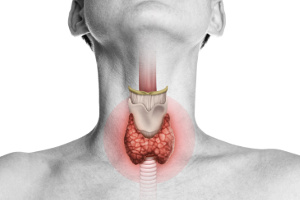
 In ancient times when our ancestors hunted, they consumed every inch of the animal – from one end to another. Organ meat such as the liver, the heart, and the kidneys were delicacies that contained far more essential nutrients than other parts of the animal. In Western countries, we primarily consume muscle meat. In addition, animals often get unnatural fodder with suboptimal nutrient content. This results in deficiencies and an imbalance between amino acids and fatty acids. In the following article, you can read more about organ meats (also known as offal), bone marrow, and bone broth and their high content of essential amino acids,
In ancient times when our ancestors hunted, they consumed every inch of the animal – from one end to another. Organ meat such as the liver, the heart, and the kidneys were delicacies that contained far more essential nutrients than other parts of the animal. In Western countries, we primarily consume muscle meat. In addition, animals often get unnatural fodder with suboptimal nutrient content. This results in deficiencies and an imbalance between amino acids and fatty acids. In the following article, you can read more about organ meats (also known as offal), bone marrow, and bone broth and their high content of essential amino acids, 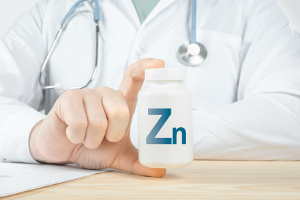 Over the past decades, it has been common practice to use
Over the past decades, it has been common practice to use 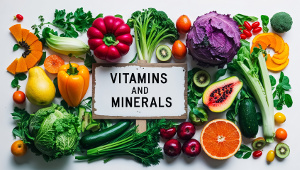

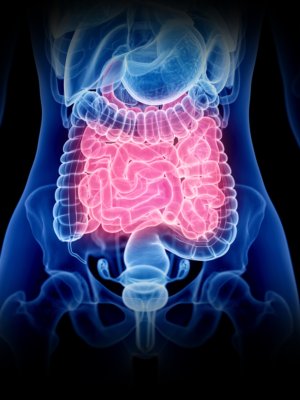 People with celiac disease are hyper-sensitive towards gluten, which we get from wheat and other grains. Gluten triggers inflammatory processes in the mucosa of the small intestine, impairing the uptake of nutrients. At the time of being diagnosed with the condition, people are often severely deficient in
People with celiac disease are hyper-sensitive towards gluten, which we get from wheat and other grains. Gluten triggers inflammatory processes in the mucosa of the small intestine, impairing the uptake of nutrients. At the time of being diagnosed with the condition, people are often severely deficient in  Having healthy-looking hair means a lot to most people. Hair that splits at the ends, hair loss, and other hair problems may be caused by stress, hormone changes, and numerous other factors. In this article, we will take a closer look at the diet and its impact on hair health, and we will look at available studies of protein, iron, zinc, selenium, silica, B vitamins, vitamin D and vitamin A. The fact is, we need plenty of these nutrients in a form that the body can absorb and utilize. On the other hand, getting too much can do more harm than good, according to an article in Dermatology Practical & Conceptual, in which the author has analyzed the available research.
Having healthy-looking hair means a lot to most people. Hair that splits at the ends, hair loss, and other hair problems may be caused by stress, hormone changes, and numerous other factors. In this article, we will take a closer look at the diet and its impact on hair health, and we will look at available studies of protein, iron, zinc, selenium, silica, B vitamins, vitamin D and vitamin A. The fact is, we need plenty of these nutrients in a form that the body can absorb and utilize. On the other hand, getting too much can do more harm than good, according to an article in Dermatology Practical & Conceptual, in which the author has analyzed the available research.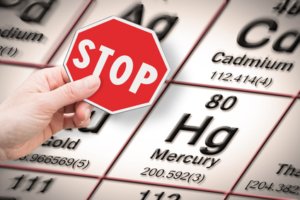 The most harmful heavy metals are mercury, cadmium, lead, nickel, and cobber, but aluminum, fluoride, iron, and calcium can also be toxic. Poisoning with heavy metals and minerals blocks other minerals such as selenium, iodine, magnesium, and zinc, all of which support numerous essential enzyme processes. At the same time, if you lack these important minerals, heavy metals are able to cause unhindered damage and increase your risk of impaired immunity, impaired fertility, autoimmune diseases, thyroid diseases, brain damage, neurological diseases, depression, hypersensitivity, etc. Chronic heavy metal toxicity is an overlooked problem, but in this article, you can read more about the subject and find out how to deal with it.
The most harmful heavy metals are mercury, cadmium, lead, nickel, and cobber, but aluminum, fluoride, iron, and calcium can also be toxic. Poisoning with heavy metals and minerals blocks other minerals such as selenium, iodine, magnesium, and zinc, all of which support numerous essential enzyme processes. At the same time, if you lack these important minerals, heavy metals are able to cause unhindered damage and increase your risk of impaired immunity, impaired fertility, autoimmune diseases, thyroid diseases, brain damage, neurological diseases, depression, hypersensitivity, etc. Chronic heavy metal toxicity is an overlooked problem, but in this article, you can read more about the subject and find out how to deal with it.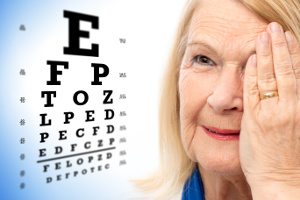

 There are several possible causes of male impotence, and the risk increases with age. Oxidative stress appears to play a role, as this condition contributes to local atherosclerosis, which restricts blood flow to the penis. However, consuming a variety of antioxidants - such as
There are several possible causes of male impotence, and the risk increases with age. Oxidative stress appears to play a role, as this condition contributes to local atherosclerosis, which restricts blood flow to the penis. However, consuming a variety of antioxidants - such as  Ageing is linked to uncontrolled, low-grade inflammation, also known as inflammaging, according to articles published in the journals Nature Medicine and Ageing and Disease. Although chronic inflammation is not felt directly it may set the stage for cardiovascular disease, rheumatism, Alzheimer’s disease, and cancer. Chronic inflammation may also cause virus infections like influenza and COVID-19 to become life-threatening because the immune defense suddenly overreacts and attacks healthy tissue. It is therefore vital for ageing people to protect themselves against chronic inflammation, which means getting plenty of vitamin D, selenium, coenzyme Q10, zinc, omega-3, and melatonin. These are all things that many older people often lack.
Ageing is linked to uncontrolled, low-grade inflammation, also known as inflammaging, according to articles published in the journals Nature Medicine and Ageing and Disease. Although chronic inflammation is not felt directly it may set the stage for cardiovascular disease, rheumatism, Alzheimer’s disease, and cancer. Chronic inflammation may also cause virus infections like influenza and COVID-19 to become life-threatening because the immune defense suddenly overreacts and attacks healthy tissue. It is therefore vital for ageing people to protect themselves against chronic inflammation, which means getting plenty of vitamin D, selenium, coenzyme Q10, zinc, omega-3, and melatonin. These are all things that many older people often lack.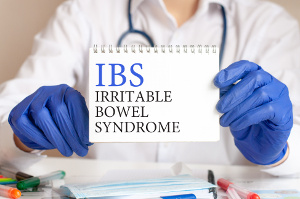
 Minerals are involved in countless functions of vital importance to the immune defense. That is why lack of one or several minerals can increase your risk of infections or perhaps trigger unwanted inflammation that can damage healthy tissue. In a new review article that is published in Nutrients, a group of scientists look at magnesium, selenium, zinc, iron, and copper and their role in the immune system. They also look at the fact that vegans, older people, chronically ill, pregnant women, and elite athletes often have nutrient deficiencies that call for supplementation. The agricultural soil in Europe and many other parts of the world is selenium-depleted, which makes it challenging to get enough selenium from our diets. But it is also important not to overdose on minerals. In this article, you can read more about how to optimize your nutrient intake for your immune health.
Minerals are involved in countless functions of vital importance to the immune defense. That is why lack of one or several minerals can increase your risk of infections or perhaps trigger unwanted inflammation that can damage healthy tissue. In a new review article that is published in Nutrients, a group of scientists look at magnesium, selenium, zinc, iron, and copper and their role in the immune system. They also look at the fact that vegans, older people, chronically ill, pregnant women, and elite athletes often have nutrient deficiencies that call for supplementation. The agricultural soil in Europe and many other parts of the world is selenium-depleted, which makes it challenging to get enough selenium from our diets. But it is also important not to overdose on minerals. In this article, you can read more about how to optimize your nutrient intake for your immune health. When it comes to COVID-19 and other seasonal virus infections most of the focus is concentrated on vitamin D deficiency. According to a Belgian study, however, lack of selenium and zinc additionally increases the risk of infections, complications, and death, especially among patients who already suffer from chronic diseases. The scientists conclude that supplementation with selenium and zinc may help improve treatments. Selenium and zinc deficiencies are rather common and that is a problem for public health. Even with a healthy diet, it is practically impossible for Europeans to get enough selenium because of the nutrient-depleted farmland. There are also many people with zinc deficiencies due to unhealthy diets, ageing, chronic diseases, and other contributing factors. We must be much more focused on getting enough selenium and zinc, not least for the sake of preventing virus infections and other problems.
When it comes to COVID-19 and other seasonal virus infections most of the focus is concentrated on vitamin D deficiency. According to a Belgian study, however, lack of selenium and zinc additionally increases the risk of infections, complications, and death, especially among patients who already suffer from chronic diseases. The scientists conclude that supplementation with selenium and zinc may help improve treatments. Selenium and zinc deficiencies are rather common and that is a problem for public health. Even with a healthy diet, it is practically impossible for Europeans to get enough selenium because of the nutrient-depleted farmland. There are also many people with zinc deficiencies due to unhealthy diets, ageing, chronic diseases, and other contributing factors. We must be much more focused on getting enough selenium and zinc, not least for the sake of preventing virus infections and other problems. It is well established that
It is well established that  Chronic heart failure is a potentially life-threatening condition that affects millions of people worldwide. A group of scientists recently looked at the relation between chronic heart failure and
Chronic heart failure is a potentially life-threatening condition that affects millions of people worldwide. A group of scientists recently looked at the relation between chronic heart failure and  Congenital heart defects are the most common birth defect on a global scale. The condition is associated with a number of different complications and even comes with an increased risk of infant death. Maternal nutritional status is vital for the development of the fetus, and a team of Chinese scientists has looked closer at how
Congenital heart defects are the most common birth defect on a global scale. The condition is associated with a number of different complications and even comes with an increased risk of infant death. Maternal nutritional status is vital for the development of the fetus, and a team of Chinese scientists has looked closer at how 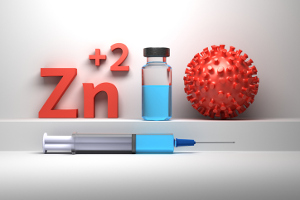 Australian scientists are about to initiate the first clinical trial of intravenous
Australian scientists are about to initiate the first clinical trial of intravenous 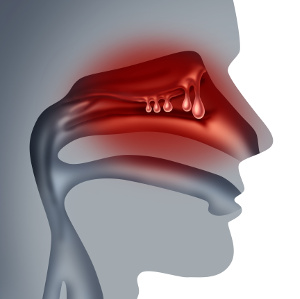 Nasal polyps are local growths that may cause runny nose, breathing difficulty, reduced sense of smell, and other symptoms. The polyps are a result of chronic inflammation that can have its roots in a number of causes. According to a new study that is published in Clinical Epidemiology and Global Health, patients with nasal polyps have lower levels of
Nasal polyps are local growths that may cause runny nose, breathing difficulty, reduced sense of smell, and other symptoms. The polyps are a result of chronic inflammation that can have its roots in a number of causes. According to a new study that is published in Clinical Epidemiology and Global Health, patients with nasal polyps have lower levels of  PCOS – or polycystic ovary syndrome – is a problem that occurs in 5-10 percent of women of childbearing age. It is the most common cause of involuntary infertility. Related symptoms include tiredness, hirsutism (male hair growth), acne, and irregular menstrual periods. PCOS is often linked to instable blood sugar, increased risk of insulin resistance, overweight, cardiovascular disease, type 2 diabetes, and autoimmune diseases like Hashimoto’s thyroiditis that causes slow metabolism. Diet and exercise mean a lot in terms of prevention and treatment. The same is the case with different vitamins and minerals. We will be looking closer at B vitamins, vitamin D, vitamin E, and coenzyme Q10, plus magnesium, zinc, selenium, chromium, iodine, and fish oil. We will also be looking at how relevant supplements, according to science, can help control blood sugar levels and the hormone balance.
PCOS – or polycystic ovary syndrome – is a problem that occurs in 5-10 percent of women of childbearing age. It is the most common cause of involuntary infertility. Related symptoms include tiredness, hirsutism (male hair growth), acne, and irregular menstrual periods. PCOS is often linked to instable blood sugar, increased risk of insulin resistance, overweight, cardiovascular disease, type 2 diabetes, and autoimmune diseases like Hashimoto’s thyroiditis that causes slow metabolism. Diet and exercise mean a lot in terms of prevention and treatment. The same is the case with different vitamins and minerals. We will be looking closer at B vitamins, vitamin D, vitamin E, and coenzyme Q10, plus magnesium, zinc, selenium, chromium, iodine, and fish oil. We will also be looking at how relevant supplements, according to science, can help control blood sugar levels and the hormone balance.
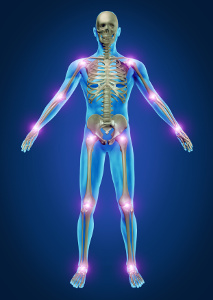 Rheumatism is the most widespread chronic disease in Denmark, and many people experience a worsening of the symptoms during the winter period. The majority of people take anti-inflammatory drugs for years, but this increases their risk of bleeding stomach ulcers and other side effects, not to mention premature death. The underlying cause is chronic inflammation and it is a problem that is not properly addressed. For decades, Nobel Prize-winners and other scientists have revealed what causes chronic inflammation and how the problem in many cases can be helped with various supplements that help cure the pain. In the following, we have summarized a lot of the research that has been conducted with vitamin D, fish oil, magnesium, selenium, zinc, and glucosamine, and we have looked at why the anti-inflammatory lifestyle has become such a health trend. It is essential to use supplements that contain the different ingredients in therapeutic doses and with a quality that allows the body to absorb and utilize the active compounds.
Rheumatism is the most widespread chronic disease in Denmark, and many people experience a worsening of the symptoms during the winter period. The majority of people take anti-inflammatory drugs for years, but this increases their risk of bleeding stomach ulcers and other side effects, not to mention premature death. The underlying cause is chronic inflammation and it is a problem that is not properly addressed. For decades, Nobel Prize-winners and other scientists have revealed what causes chronic inflammation and how the problem in many cases can be helped with various supplements that help cure the pain. In the following, we have summarized a lot of the research that has been conducted with vitamin D, fish oil, magnesium, selenium, zinc, and glucosamine, and we have looked at why the anti-inflammatory lifestyle has become such a health trend. It is essential to use supplements that contain the different ingredients in therapeutic doses and with a quality that allows the body to absorb and utilize the active compounds.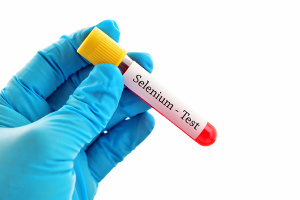
 Involuntary childlessness has become increasingly common. Many women find themselves in a race against time, and their biological clock keeps ticking louder and louder. Fertility therapies, miscarriages, preeclampsia, and other complications during pregnancy contribute to the physical and emotional burden. In a new Australian study that is published in Nutrients, the authors write about
Involuntary childlessness has become increasingly common. Many women find themselves in a race against time, and their biological clock keeps ticking louder and louder. Fertility therapies, miscarriages, preeclampsia, and other complications during pregnancy contribute to the physical and emotional burden. In a new Australian study that is published in Nutrients, the authors write about  The condition of our skin means a lot to our appearance and health, and being deficient in one or several nutrients can cause premature skin ageing. Also, things like poor wound healing, acne, herpes infections, yeast infections, eczema, psoriasis, and other skin disorders may occur. In a review article published in Medicina, scientists have looked at the role of vitamins A, C, E, D, and biotin plus omega-3 fatty acids in skin health. Studies suggest that selenium and zinc may also be important for healthy skin and anti-ageing. If you don’t get enough of these nutrients or if you simply have an increased need for them, you may consider taking a supplement.
The condition of our skin means a lot to our appearance and health, and being deficient in one or several nutrients can cause premature skin ageing. Also, things like poor wound healing, acne, herpes infections, yeast infections, eczema, psoriasis, and other skin disorders may occur. In a review article published in Medicina, scientists have looked at the role of vitamins A, C, E, D, and biotin plus omega-3 fatty acids in skin health. Studies suggest that selenium and zinc may also be important for healthy skin and anti-ageing. If you don’t get enough of these nutrients or if you simply have an increased need for them, you may consider taking a supplement. Poor sperm quality, which is a bit of a taboo, is one of the main causes of involuntary infertility. Evidence suggests that Western diets can impair sperm quality, whereas the Mediterranean diet does the opposite. Vegan diets are somewhat controversial, according to a review article published in International Journal of Molecular Sciences. Previous research has shown that supplementation with selenium, zinc, fish oil, and coenzyme Q10 can improve sperm cell quality.
Poor sperm quality, which is a bit of a taboo, is one of the main causes of involuntary infertility. Evidence suggests that Western diets can impair sperm quality, whereas the Mediterranean diet does the opposite. Vegan diets are somewhat controversial, according to a review article published in International Journal of Molecular Sciences. Previous research has shown that supplementation with selenium, zinc, fish oil, and coenzyme Q10 can improve sperm cell quality. Everyone knows that exercise and sports activities are good for you, but overtraining and high-performance sport may increase your risk of oxidative stress, which is associated with acute injuries, inflammation and later risk of neurodegenerative disease such as Alzheimer’s disease and ALS (amyotrophic lateral sclerosis). It is therefore a good idea to take antioxidant supplements, as this may help prevent both acute and chronic injuries. A comprehensive article published in the science journal Nutrients looks closer at the relation between free radicals and antioxidants, which have different functions in connection with various types of physical activity. This is especially the case with vitamins A, C, and E plus selenium and zinc. It is also important to make sure to get enough vitamin D and omega-3 fatty acids for counteracting inflammation and oxidative stress.
Everyone knows that exercise and sports activities are good for you, but overtraining and high-performance sport may increase your risk of oxidative stress, which is associated with acute injuries, inflammation and later risk of neurodegenerative disease such as Alzheimer’s disease and ALS (amyotrophic lateral sclerosis). It is therefore a good idea to take antioxidant supplements, as this may help prevent both acute and chronic injuries. A comprehensive article published in the science journal Nutrients looks closer at the relation between free radicals and antioxidants, which have different functions in connection with various types of physical activity. This is especially the case with vitamins A, C, and E plus selenium and zinc. It is also important to make sure to get enough vitamin D and omega-3 fatty acids for counteracting inflammation and oxidative stress. Regular sport is good for you, whereas arduous training and high-performance sport can result in physical injuries, infections, chronic inflammation, and serious diseases due to oxidative stress. This phenomenon occurs as a result of the increased energy turnover, which produces an excess of free radicals that cause damage to cells and tissues. Oxidative stress is also associated with impaired performance, poor restitution, and faster ageing. Our only natural defense against free radicals is the presence of antioxidants, and it is especially things like
Regular sport is good for you, whereas arduous training and high-performance sport can result in physical injuries, infections, chronic inflammation, and serious diseases due to oxidative stress. This phenomenon occurs as a result of the increased energy turnover, which produces an excess of free radicals that cause damage to cells and tissues. Oxidative stress is also associated with impaired performance, poor restitution, and faster ageing. Our only natural defense against free radicals is the presence of antioxidants, and it is especially things like 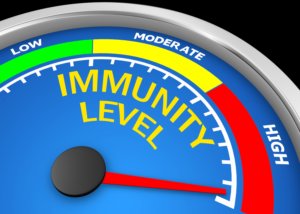 Scientists have discovered traces of antibiotic-resistant super bacteria (NDM-1) in the soil of Svalbard. This archipelago is located in the arctic ocean between the North Pole and Norway, several thousand kilometers from India where the bacteria was originally discovered. This is described in a study that is published in the science journal, Environment International. Bacteria with the resistance gene NDM-1 have now spread to a number of other countries and many people have lost their lives to them. Humans are also challenged by other antibiotic-resistant bacteria, and the British health authorities consider this to be a larger threat to humans than climate change. But what causes these bacteria to develop resistance? And what vitamins and minerals are particularly important for bolstering the immune system? After all, our immune defense is our only way of protecting ourselves if antibiotics fail to work.
Scientists have discovered traces of antibiotic-resistant super bacteria (NDM-1) in the soil of Svalbard. This archipelago is located in the arctic ocean between the North Pole and Norway, several thousand kilometers from India where the bacteria was originally discovered. This is described in a study that is published in the science journal, Environment International. Bacteria with the resistance gene NDM-1 have now spread to a number of other countries and many people have lost their lives to them. Humans are also challenged by other antibiotic-resistant bacteria, and the British health authorities consider this to be a larger threat to humans than climate change. But what causes these bacteria to develop resistance? And what vitamins and minerals are particularly important for bolstering the immune system? After all, our immune defense is our only way of protecting ourselves if antibiotics fail to work.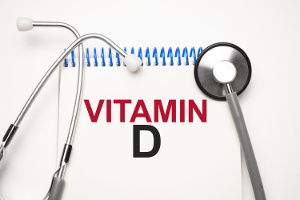 There is worldwide focus on finding better ways to prevent and treat COVID-19 because of the limited effect of vaccines. It is important to understand why the infections are harmless in most cases and why only a small number of people are affected by ARDS (acute respiratory distress syndrome), which is complicated and involves hyperinflammation. What represents the real problem here and what makes these infections life-threatening is a derailed and overactive immune defense. Multiple studies have already demonstrated that lack of vitamin D increases the risk of being infected with COVID-19 ending up in intensive care, and the studies also show that vitamin D supplements have a therapeutic potential. In a new review article that is published in Clinical and Molecular Allergy, researchers look closer at the synergy between vitamin D, magnesium, and zinc in relation to their ability to regulate the immune system and as potential therapeutic agents. It is also vital to have enough selenium, a nutrient that many people lack.
There is worldwide focus on finding better ways to prevent and treat COVID-19 because of the limited effect of vaccines. It is important to understand why the infections are harmless in most cases and why only a small number of people are affected by ARDS (acute respiratory distress syndrome), which is complicated and involves hyperinflammation. What represents the real problem here and what makes these infections life-threatening is a derailed and overactive immune defense. Multiple studies have already demonstrated that lack of vitamin D increases the risk of being infected with COVID-19 ending up in intensive care, and the studies also show that vitamin D supplements have a therapeutic potential. In a new review article that is published in Clinical and Molecular Allergy, researchers look closer at the synergy between vitamin D, magnesium, and zinc in relation to their ability to regulate the immune system and as potential therapeutic agents. It is also vital to have enough selenium, a nutrient that many people lack.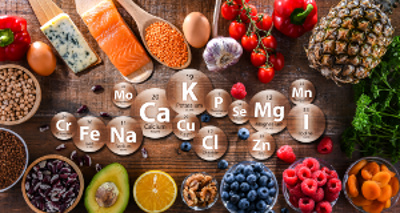
 Migraine headaches, a problem that affects far more women than men, is one of the diseases that costs most sick days, and there is no medical treatment that can cure the underlying cause. What we eat appears to play a major role, which is because foods such as matured cheese, chocolate, caffeinated beverages, red wine, and monosodium glutamate (MSG) can trigger migraines and headaches. Also, eating an unbalanced diet that is low in specific nutrients such as magnesium, B vitamins, and Q10 can disrupt certain metabolic processes, thereby setting off an attack. This was seen in a new study that is published in Frontiers in Nutrition.
Migraine headaches, a problem that affects far more women than men, is one of the diseases that costs most sick days, and there is no medical treatment that can cure the underlying cause. What we eat appears to play a major role, which is because foods such as matured cheese, chocolate, caffeinated beverages, red wine, and monosodium glutamate (MSG) can trigger migraines and headaches. Also, eating an unbalanced diet that is low in specific nutrients such as magnesium, B vitamins, and Q10 can disrupt certain metabolic processes, thereby setting off an attack. This was seen in a new study that is published in Frontiers in Nutrition.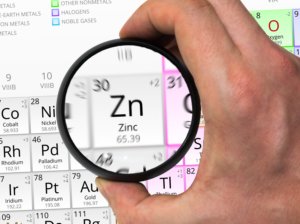 More and more people get autism. The disease is linked to, among other things, lack of
More and more people get autism. The disease is linked to, among other things, lack of 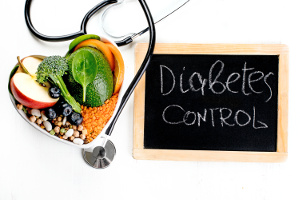
 Depression is on the rise. The problem is often caused by inflammation in the brain. The British neuro-immunologist, Edvard Bullmore, has published the thought-provoking book called The Inflamed Mind, in which he describes the link between root canal treatment and depression, among other things. David Perlmutter, a neurologist, has written the book, Grain Brain, where he describes how gluten combined with carbohydrate overload also can cause inflammation in the brain. Depression, in other words, may occur when the blood-brain barrier is not as impermeable as assumed, and when the cytokines of the immune defense are able to cause undesirable brain inflammation. Numerous studies have shown that fish oil, vitamin D, magnesium, zinc, and selenium can improve a person’s mood by counteracting inflammation in the brain and other sites, and there is often a connection. It requires therapeutic doses, however, and it is vital that the supplements have good bioavailability, so the active substances reach the cells.
Depression is on the rise. The problem is often caused by inflammation in the brain. The British neuro-immunologist, Edvard Bullmore, has published the thought-provoking book called The Inflamed Mind, in which he describes the link between root canal treatment and depression, among other things. David Perlmutter, a neurologist, has written the book, Grain Brain, where he describes how gluten combined with carbohydrate overload also can cause inflammation in the brain. Depression, in other words, may occur when the blood-brain barrier is not as impermeable as assumed, and when the cytokines of the immune defense are able to cause undesirable brain inflammation. Numerous studies have shown that fish oil, vitamin D, magnesium, zinc, and selenium can improve a person’s mood by counteracting inflammation in the brain and other sites, and there is often a connection. It requires therapeutic doses, however, and it is vital that the supplements have good bioavailability, so the active substances reach the cells. During the winter period, many people catch a cold or are bed-ridden with a bout of the flu. They may consider this to be perfectly natural, but it is actually a sign of a weakened immune defense, and that makes them susceptible to contamination. What matters is to make sure to get plenty of vitamin D, vitamin C, selenium, and zinc, all of which are nutrients that have different functions in the immune system. Some nutrients are also needed in larger quantities to tackle a beginning infection, and it is important to act quickly in order to nip the infection in the bud.
During the winter period, many people catch a cold or are bed-ridden with a bout of the flu. They may consider this to be perfectly natural, but it is actually a sign of a weakened immune defense, and that makes them susceptible to contamination. What matters is to make sure to get plenty of vitamin D, vitamin C, selenium, and zinc, all of which are nutrients that have different functions in the immune system. Some nutrients are also needed in larger quantities to tackle a beginning infection, and it is important to act quickly in order to nip the infection in the bud. Everyone is talking about the climate, and meat has lost popularity for a number of reasons. But let us keep our heads clear on the facts. There is a big difference between CO2 emissions, animal welfare, and the quality or quantity of meat on one hand and the nutritional aspects of meat on the other hand. Humans have been eating meat (including fish) for around two million years, and animal food sources have contributed to our large brains and development in general. Nonetheless, more and more people choose to become vegetarians, and the trend is especially popular among women. This gives rise for concern, as lack of protein, vitamin D, vitamin B12, iodine, selenium, iron, zinc and omega-3 fatty acids not only impairs fertility but even increases the risk of metabolic disorders, serious growth disturbances in children and a lot more. Some of these symptoms are insidious and therefore difficult to link to the diet.
Everyone is talking about the climate, and meat has lost popularity for a number of reasons. But let us keep our heads clear on the facts. There is a big difference between CO2 emissions, animal welfare, and the quality or quantity of meat on one hand and the nutritional aspects of meat on the other hand. Humans have been eating meat (including fish) for around two million years, and animal food sources have contributed to our large brains and development in general. Nonetheless, more and more people choose to become vegetarians, and the trend is especially popular among women. This gives rise for concern, as lack of protein, vitamin D, vitamin B12, iodine, selenium, iron, zinc and omega-3 fatty acids not only impairs fertility but even increases the risk of metabolic disorders, serious growth disturbances in children and a lot more. Some of these symptoms are insidious and therefore difficult to link to the diet.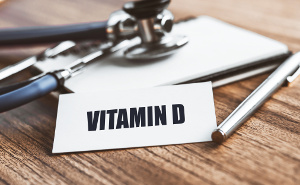
 It is vital to take good care of your eyes throughout life to maintain good vision. Our eyes need a number of different vitamins, minerals, and fatty acids that are important for cellular function and for protecting against oxidative stress. In this article, you can read more about vitamin A, vitamin C, vitamin E, B vitamins, zinc, selenium, omega-3 fatty acids, and Q10 and their vital role in maintaining healthy vision. We will also look at certain antioxidants that are found in eggs, salmon, spinach, broccoli, red bell pepper, and blueberries.
It is vital to take good care of your eyes throughout life to maintain good vision. Our eyes need a number of different vitamins, minerals, and fatty acids that are important for cellular function and for protecting against oxidative stress. In this article, you can read more about vitamin A, vitamin C, vitamin E, B vitamins, zinc, selenium, omega-3 fatty acids, and Q10 and their vital role in maintaining healthy vision. We will also look at certain antioxidants that are found in eggs, salmon, spinach, broccoli, red bell pepper, and blueberries.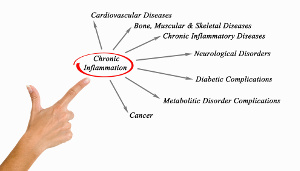 According to WHO, chronic inflammation is the leading cause of death worldwide. Although it is not something that can be felt as such, chronic inflammation sets the stage for a host of different diseases. In a new review article that is published in StatPearls, the authors look closer at why chronic inflammation is so dangerous and how a healthier lifestyle with vitamin D, selenium, magnesium, zinc, and fish oil can help fight the inflammation and prevent the many different diseases and early death that follow in its wake.
According to WHO, chronic inflammation is the leading cause of death worldwide. Although it is not something that can be felt as such, chronic inflammation sets the stage for a host of different diseases. In a new review article that is published in StatPearls, the authors look closer at why chronic inflammation is so dangerous and how a healthier lifestyle with vitamin D, selenium, magnesium, zinc, and fish oil can help fight the inflammation and prevent the many different diseases and early death that follow in its wake. Decades of intensive farming have depleted the soil. As a result, crops lack up to 40% of their essential nutrients, according to a previously published study from University of Texas and a more recent one from Switzerland. Even if you stick to the official dietary guidelines, you may have difficulty with getting enough
Decades of intensive farming have depleted the soil. As a result, crops lack up to 40% of their essential nutrients, according to a previously published study from University of Texas and a more recent one from Switzerland. Even if you stick to the official dietary guidelines, you may have difficulty with getting enough Multiple studies have shown that
Multiple studies have shown that 
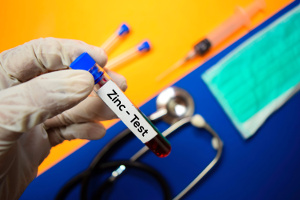 It is commonly known that
It is commonly known that 
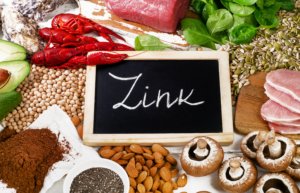 An estimated two billion people worldwide lack
An estimated two billion people worldwide lack 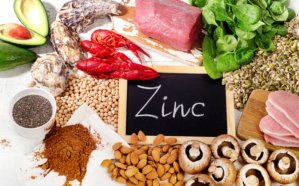 Our ability to absorb
Our ability to absorb 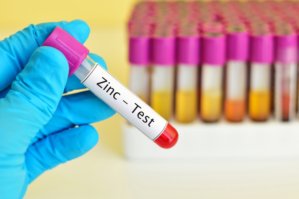 Lack of dietary
Lack of dietary 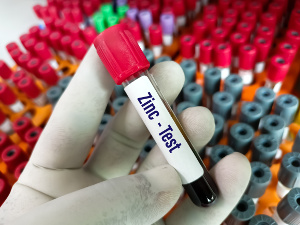
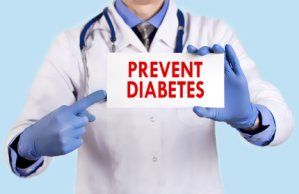
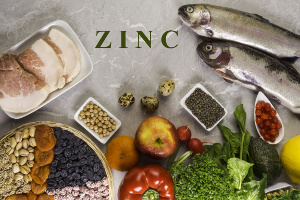 Type 2 diabetes is spreading like a bushfire with many people unaware that they have the disease. Diabetes increases your risk of cardiovascular disease, blood clots, and early death. A group of scientists from the University of St. Andrews in Scotland has looked closer at the different processes and studied the trace element zinc and its ability to improve the outcome of therapy by preventing dangerous blood clots. The new study is published in the Chemical Science journal.
Type 2 diabetes is spreading like a bushfire with many people unaware that they have the disease. Diabetes increases your risk of cardiovascular disease, blood clots, and early death. A group of scientists from the University of St. Andrews in Scotland has looked closer at the different processes and studied the trace element zinc and its ability to improve the outcome of therapy by preventing dangerous blood clots. The new study is published in the Chemical Science journal. 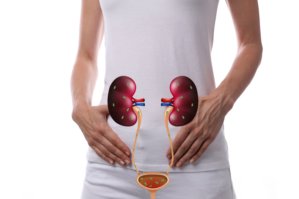 Bladder infection is one of the most widespread bacterial infections. It can lead to serious complications such as kidney infections and blood poisoning. A team of scientists from University of Queensland in Australia has discovered new details about
Bladder infection is one of the most widespread bacterial infections. It can lead to serious complications such as kidney infections and blood poisoning. A team of scientists from University of Queensland in Australia has discovered new details about 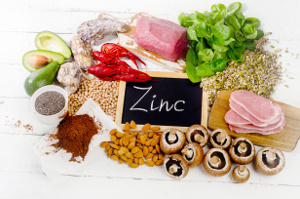 Zinc is of vital importance to the immune defense, our mental balance, fertility, skin, hair, sense of taste, and numerous other functions. According to a new study that is published in Current Research in Physiology,
Zinc is of vital importance to the immune defense, our mental balance, fertility, skin, hair, sense of taste, and numerous other functions. According to a new study that is published in Current Research in Physiology,  The mineral
The mineral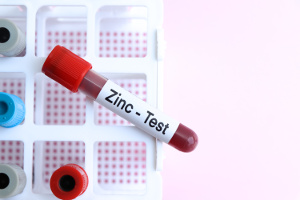
 Even minor
Even minor 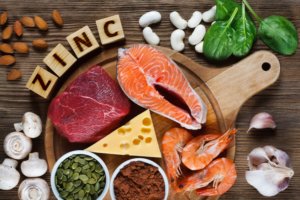 Pneumonia is a serious disease, from which more than one million people die each year. A team of scientists from Melbourne University in Australia has now discovered how the trace element
Pneumonia is a serious disease, from which more than one million people die each year. A team of scientists from Melbourne University in Australia has now discovered how the trace element 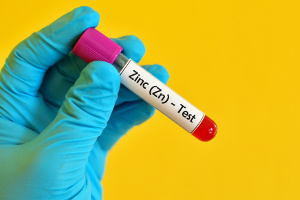
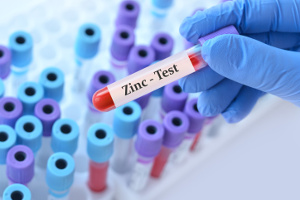
 Migraine is a chronic neurological disorder that can ruin your quality of life and cost you many sick days. Migraine medicine does not necessarily work for all patients and many people get side effects. Therefore, prevention is a better strategy. According to a new study published in Nutrition Journal, zinc supplements have the potential to significantly reduce the frequency of migraine headaches. You can also read about two other nutrients that reduce the frequency and severity of migraine attacks and what it is that triggers them. The most important thing is to find and address the different causes. Diet and lifestyle have a profound impact.
Migraine is a chronic neurological disorder that can ruin your quality of life and cost you many sick days. Migraine medicine does not necessarily work for all patients and many people get side effects. Therefore, prevention is a better strategy. According to a new study published in Nutrition Journal, zinc supplements have the potential to significantly reduce the frequency of migraine headaches. You can also read about two other nutrients that reduce the frequency and severity of migraine attacks and what it is that triggers them. The most important thing is to find and address the different causes. Diet and lifestyle have a profound impact. Our skin is among the body’s organs that contains the most zinc, and the trace element is of vital importance to the formation and protection of skin cells. A zinc deficiency can therefore contribute to poor wound healing, sensitive skin, acne, eczema and other skin disorders, and hair loss, according to a new study that is published in the scientific journal Nutrients. Although clinical zinc deficiencies are rare in our part of the world, sub-clinical deficiencies are rather common. For instance, vegetarians, pregnant and breastfeeding women, and older people are particularly vulnerable. A large intake of sugar, calcium, and alcohol, the use of birth control pills and several types of medicine, plus certain diseases and other factors can also increase your risk of becoming zinc-deficient.
Our skin is among the body’s organs that contains the most zinc, and the trace element is of vital importance to the formation and protection of skin cells. A zinc deficiency can therefore contribute to poor wound healing, sensitive skin, acne, eczema and other skin disorders, and hair loss, according to a new study that is published in the scientific journal Nutrients. Although clinical zinc deficiencies are rare in our part of the world, sub-clinical deficiencies are rather common. For instance, vegetarians, pregnant and breastfeeding women, and older people are particularly vulnerable. A large intake of sugar, calcium, and alcohol, the use of birth control pills and several types of medicine, plus certain diseases and other factors can also increase your risk of becoming zinc-deficient. We have relatively large quantities of
We have relatively large quantities of 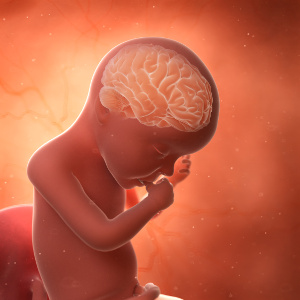
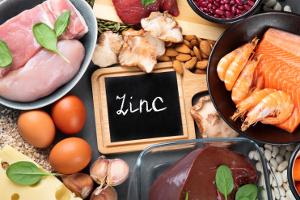
 "After about one week of taking the Q10 supplement I could feel a huge difference," says 23-year old Alan Piccini, who has been suffering from extreme fatigue and muscle aches ever since he was a child.
"After about one week of taking the Q10 supplement I could feel a huge difference," says 23-year old Alan Piccini, who has been suffering from extreme fatigue and muscle aches ever since he was a child. “Taking capsules with co-enzyme Q10 has freed me of the severe side effects of my cholesterol lowering medicine,” Mrs Franken explains.
“Taking capsules with co-enzyme Q10 has freed me of the severe side effects of my cholesterol lowering medicine,” Mrs Franken explains.